
Are we rubbish at recycling?
Following the recent media coverage and wave of interest following Blue Planet 2 and the impact of waste and plastic in our sea, I've started to think; are we really rubbish at recycling?
More +Over the past six years, opinions on recycling have evolved. What was once seen as a chore or inconvenience has now become a crucial behaviour we all take part in. As well as recycling, we’ve changed some of our consumption habits and switched to reusing. Many of us have embraced reusable water bottles and plant-based diets, shopped second-hand whilst supporting local, and made other sustainable choices.
However, despite these efforts, ongoing media coverage suggests that what we’re doing isn’t enough, and they are probably right. Despite recycling paper, cardboard, and metals at a high rate, many types of plastic are either not recycled, or remain unrecyclable. The visible effects to the environment are alarming.
So, after posing this question six years ago, the question remains – Are we still rubbish at recycling?
Statistics published by Defra in January 2024 have shown that England’s recycling rate fell by 0.8 percentage points to 43.3% in 2022/23. One significant reason for this decrease was the amount of green garden waste collected that year, which due to the dry weather conditions, and the ongoing adjustments in waste management practices and variations in waste generation patterns post COVID-19 (GOV.UK) was lower than previous years.
Although this decrease might appear small, any decline is not great when we should be speeding up. The fall in recycling rates across England, or the ‘static’ level at which we are currently recycling presents a need for new recycling initiatives, better waste management infrastructures, and greater action by local authorities to facilitate our behaviour – which actually should go beyond recycling and address consumption.
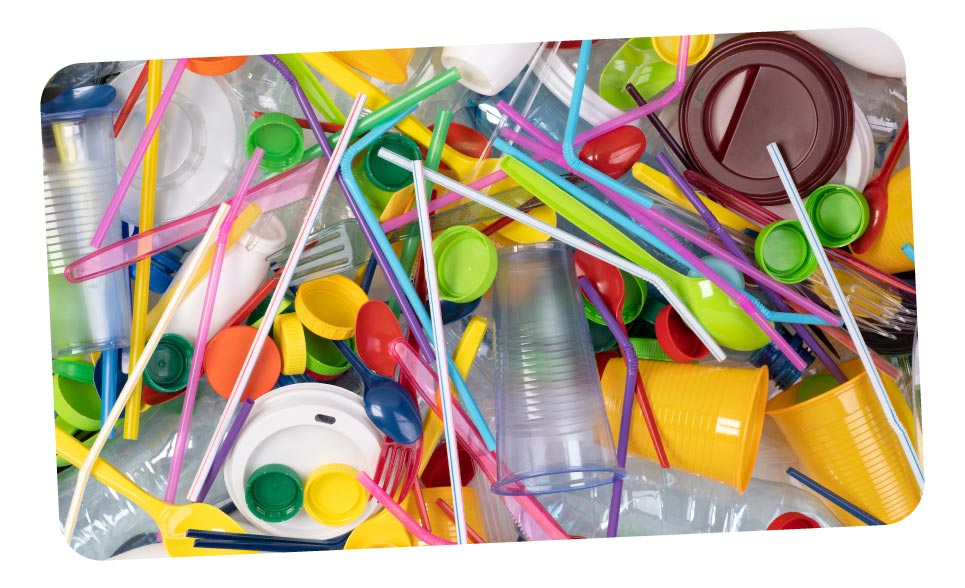
Plastic is a big problem, with 73% of beach litter worldwide containing plastic and a massive 32% of all plastic packaging produced still finding its way into our oceans every year (Warwickshire County Council). Based on the current rates of plastic pollution, by 2050, there is expected to be more plastic than fish in the ocean, meaning all life depending upon the oceans will be consuming plastics.
This was a problem 6 years ago when we wrote this article, and continues to be a major issue now - so why have we not seen any change?
Despite significant efforts to address plastic pollution, several factors contribute to the persistent and growing issue:
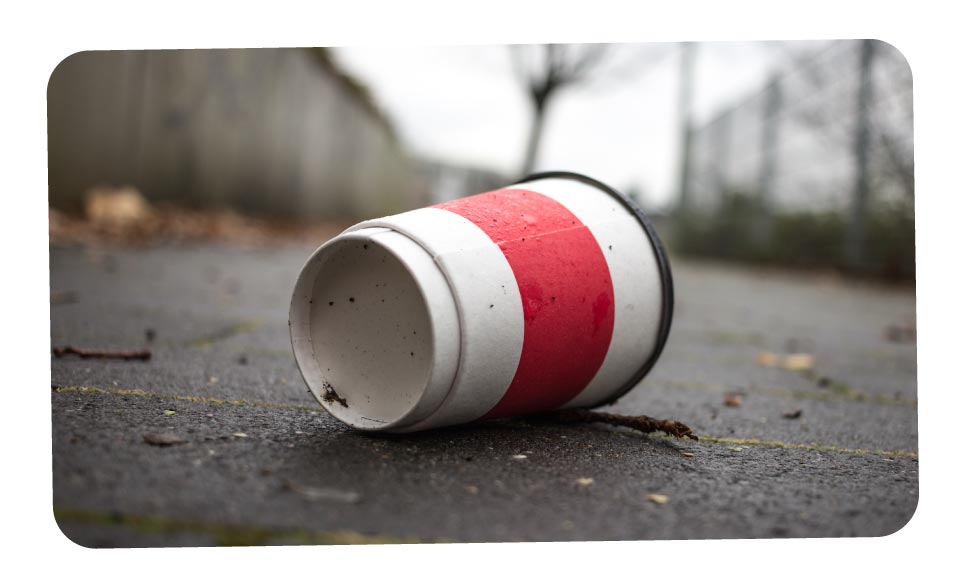
People love coffee. We have seen an explosion of coffee businesses over the last decade, and it is growing. Our high streets, town centres, retails parks and motorway stops are dominated by takeaways. 6 years ago, we looked at single-use drink cups, and whether the 2018 tax would encourage people to switch to reusable cups. With 99.57% coffee cups not being recycled, it was a major area for improvement (BBC, 2018). Millions of cups a day used with no sustainable destination. Nowadays, large brands such as Costa Coffee and Starbucks are making efforts to recycle more cups instore and do more in this space. Starbucks has introduced more sustainable cups, aiming to keep over 13.5 million pounds of plastic from landfills annually (Starbucks, 2024).
However, despite these promises and some efforts to solve this issue, the recycling rate for plastic cups remains low. In 2019, only 2 - 4% of plastic cups were recycled, a figure that hasn't improved much since (The Independent). Costa launched a scheme to recycle all its takeaway cups but has fallen short, recycling over 165 million cups, which is significantly below their goal of 500 million (Footprint). Starbucks have also partnered with the NextGen Cup Challenge to find more sustainable solutions. Overall, despite some progress, significant improvements in recycling infrastructure and consumer participation is desperately needed.
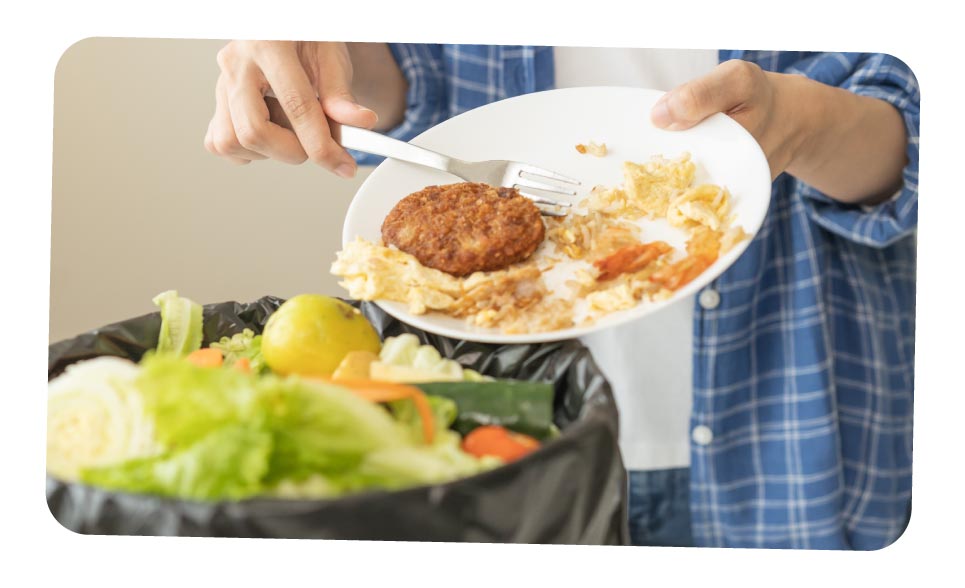
When it comes to recycling food waste, there is a lot to say, but in summary, if the UK wastes approximately 9.52 million tonnes of food every year, so this is a huge problem too. What is unpalatable however, is that this is enough to feed around 30 million people annually, yet 8.4 million live in food poverty in the UK (Waste Managed). It is clear we need to do better to reduce the amount of food we waste and learn methods to recycle, reduce or reuse. It's concerning that the UK leads Europe in food waste, a fact we should strive to change.
So are we still rubbish at recycling? Yes and no. The UK now boasts a decent recycling rate of 70.6% for paper and cardboard collected from households, showing the effectiveness of targeted recycling efforts (Waste Managed).
Policies that have led to the separation of paper and cardboard from other waste streams has reduced contamination, which is crucial for maintaining the quality of recyclable materials. This is good. For example, clean and dry paper can be recycled up to seven times, making it highly valuable for sustainable resource use (North Kesteven District Council). Contaminated or dirty cardboard, on the other hand, can complicate the recycling process, increasing costs and reducing the efficiency and quality of recycled products.
Overall, the UK's emphasis on separating paper and cardboard waste not only boosts recycling rates but also promotes environmental sustainability and economic efficiency.
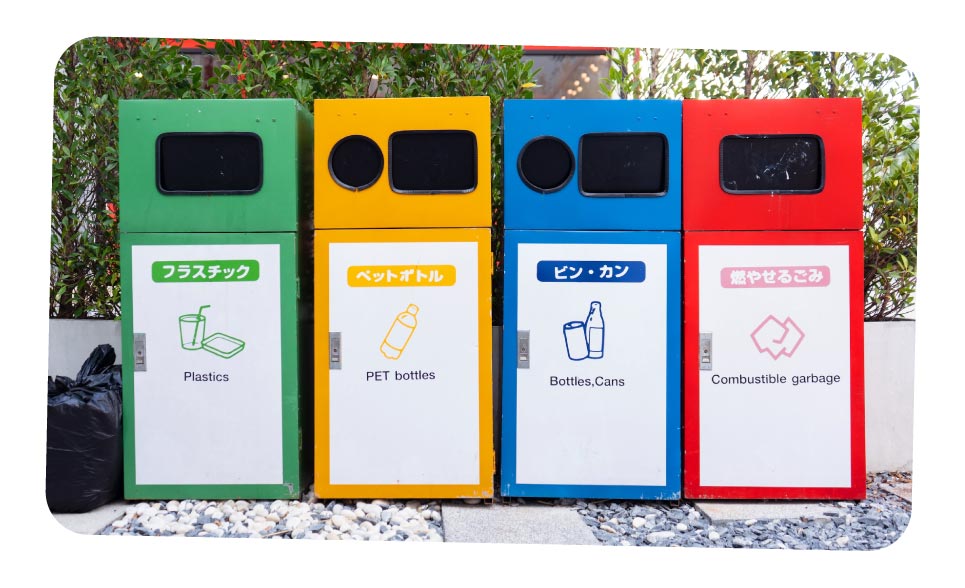
We could look at what other countries are doing and trial and pilot some of their initiatives – many of which are doing well. Several countries have implemented successful recycling programmes, highlighting innovative approaches to waste management and sustainability. For example:
Germany leads globally with a recycling rate of 67.1%. This success is largely due to policies like the German Packaging Act, which holds businesses accountable for their packaging waste and promotes eco-friendly products (Tomorrow’s World Today).
Austria follows with a 54% recycling rate, driven by strict landfill regulations that bans certain products from ending up in landfills, particularly those with an organic carbon emission rate higher than 5% (World Population Review).
South Korea, with a 53.7% recycling rate, has improved by banning coloured plastic bottles and PVC, whilst transforming food waste management from 2% in 1995 to 95% by implementing a fee system for biodegradable food waste (Tomorrow’s World Today).
Sweden uses waste-to-energy technology to convert non-recyclable waste into electricity, even importing waste to fuel its plants (OpenMind).
Japan excels with its meticulous waste separation and community involvement. For example, the town of Kamikatsu has implemented a system where residents separate waste into 34 categories. Japan's commitment to recycling is also highlighted by the use of recycled materials in manufacturing, such as the medals for the Tokyo 2020 Olympics made from recycled metals (OpenMind).
These initiatives show the importance of robust policies, community engagement, and innovative technologies in achieving high recycling rates and sustainable waste management globally.
The UK government recently announced the launch the world’s first UN-backed International Centre of Excellence on Sustainable Resource Management in the Circular Economy (GOV.UK). This centre will focus on extending the life of resources through recycling and reuse, aiming to improve resource efficiency and reduce carbon emissions.
We look forward to seeing how this initiative, part of the "Maximising Resources, Minimising Waste" programme, impacts recycling rates both in the UK and worldwide.
Overall, the future of recycling is encouraging. The advancements in technology, increased awareness, policy support, and a shift towards green practices is a positive step towards a sustainable future. However, it is clear we need to be making these strides at a much quicker rate. Importantly, we need to change human behaviour around consumption and also move people to reusing and sustaining the life of products – something we are struggling to win support on here in the UK.
Check out how behavioural science could help save the planet and talk to us about how we can support you to change human behaviour for a more sustainable future.

Following the recent media coverage and wave of interest following Blue Planet 2 and the impact of waste and plastic in our sea, I've started to think; are we really rubbish at recycling?
More +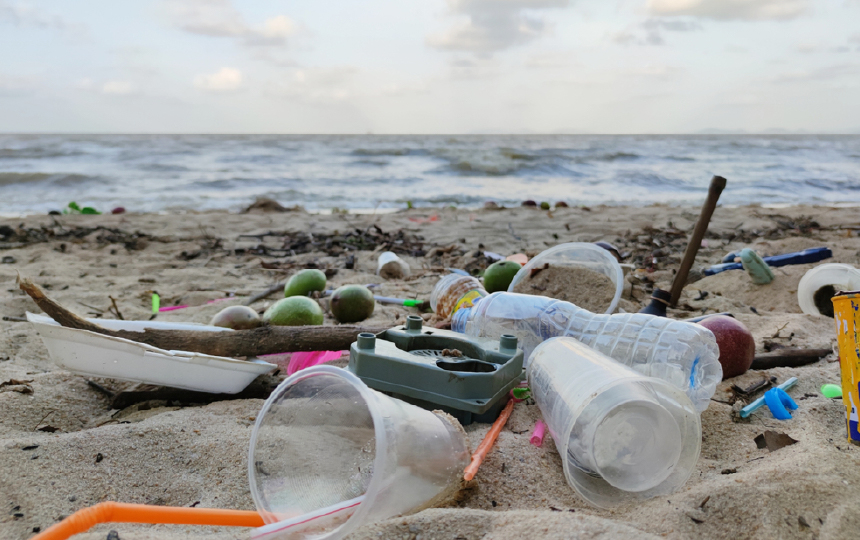
We’re working towards a world free of plastic waste, and you can help with these small steps on the road to becoming plastic-free.
More +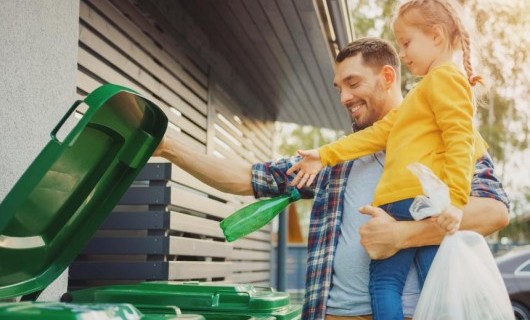
At Social Change we delve into how behavioural science can be pivotal in combating climate change. As specialists in behavioural science, we understand that 62% of future emissions reductions depend on changes in human behaviour.
More +Enter your email address below to access the Academy and our Webinars